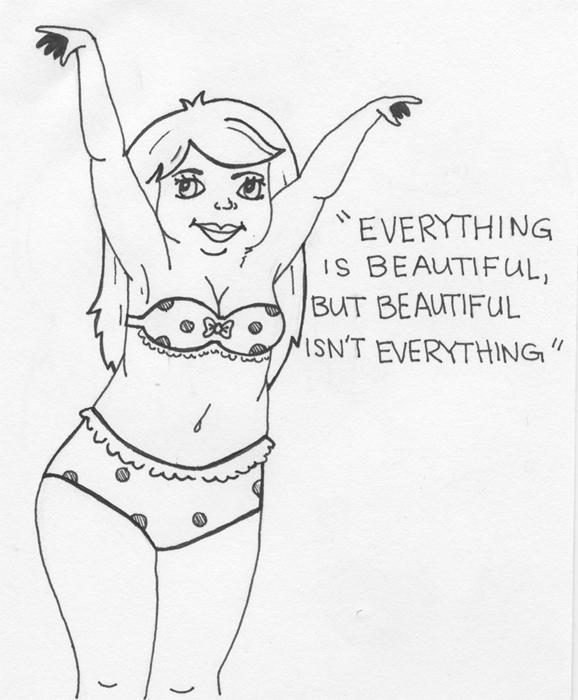
My high school cheer team was made up of a group of pretty girls that seemed to do their sport well. But whenever someone was referring to one of the girls who just happened to be bigger than the rest, she was always identified as the “fat cheerleader.” It would always be thrown into the conversation so casually, that no one ever bothered to try to say something.
Some think that this problem stops after high school, but they are wrong.
Last year while sitting in the dorms, people were having a conversation about something that had happened the previous day when someone asked who they were talking about.
The response was, “You know, the anorexic one from the other floor.”
Since when did these physical parts of us become who we are as a person? Our bodies should not be seen as flaws. They should be pushed aside because our tangible aspects are not what makes us human beings.
But society has created this notion that it does not matter how many hours of volunteer work you have, the dedication you have to a sport or even if you drop everything on a Saturday night to take care of a sick friend.
Our mind and souls have so much more to do with us than the body we happened to receive. Over time, our bodies will decay but our souls will be the same. We can preserve our youth through the way we treat others and by the conversations we choose to have.
The most beautiful human beings that I have found were not tailored to what the media has projected as being perfect. They were the ones with the slightly bigger nose, short stature and thick thighs. Those attributes reflected beauty once I saw how beautiful their soul was.
Through asking the tough questions and riding out the fights, one can learn all the possibilities someone has to offer. But if you stop trying to learn, just because of how society has identified that person, then you will be missing out on all the lessons they could teach you.
Elizabeth Ernster can be reached at [email protected] or @Liz_Ernster on Twitter.








